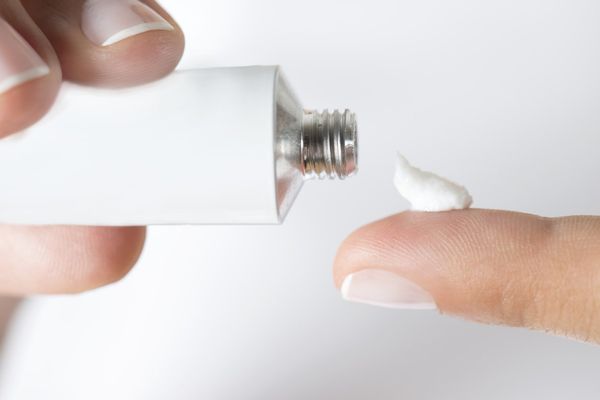It’s time to make Naked Fridays a reality. A lot of people think menopause means less sex, and less enjoyable sex, but the opposite can be true. Hitting menopause can be like hitting the jackpot for sex and intimacy.
Here are nine reasons why the end of your periods can be the beginning of a fulfilling sex life.
1. Pregnancy worries are over
Once a woman is in menopause, defined as not having had a period for a full year, she can’t get pregnant, which removes all worries about contraception, contraception failure or becoming pregnant, meaning sex after menopause is now only about pleasure and connection.
While pregnancy is no longer a concern, Barb DePree, M.D.,NCMP, director of Women’s Health Services at Holland Hospital and a member of HealthyWomen’s Women’s Health Advisory Council, pointed out that there is always a risk of sexually transmitted infections (STIs) at any age. In fact, postmenopausal women have thinner vaginal tissue, which can actually place them at more risk of developing STIs like herpes if they’re exposed.
To protect yourself if you’re not with one committed long-term partner, DePree said, “The gold standard is negative testing.” To stay safe, make sure you and new or multiple partners are regularly tested for STIs, and it’s a good idea to use condoms until you’re in a committed relationship.
2. You don’t get periods, so you’re always ready when the mood strikes
If you didn’t enjoy sex during your period or avoided it when expecting your period, sex after menopause can alleviate your concerns. Now your schedule is completely open for amazing sex year-round.
3. Stopping the pill might rev up your sex drive
Many women take oral contraceptives for many years and finally stop at menopause. The pill can reduce the amount of testosterone you have, which can lower your sex drive. “Some women definitely experience a lower libido on the pill and can really, really notice a change when they stop it,” DePree said.
Menopause itself is also associated with decreased testosterone and a lower libido, but coming off the pill can mean you might experience a bit more interest in sex.
4. An empty nest can fan the flames

iStock.com/laflor
By the time menopause arrives, any children have likely moved out, making it possible to have as much sex as you want, whenever and wherever you want it. “There’s no listening for the garage door to go up or worrying if your bed creaks. You can have sex on the sun porch if you want,” Depree said. Naked Fridays or nooners can spice things up, allowing you to be freer and less inhibited.
5. You know yourself and your body
“A lot of women find this to be a somewhat more confident time in their life,” DePree explained. “You know you. Women have years of experience, emotional confidence and self-confidence.” You know what works for your body, exactly how to have an orgasm and you aren’t afraid to ask for what you need. And you’re likely to be less self-conscious about your body or your desires.
That confidence can also give you the freedom to explore, DePree pointed out. Things you never would have tried, like playing out sexual fantasies, using sex toys, trying new positions or having different types of partners, may now seem like worthwhile experiments and might bring you new pleasure. And masturbating can also prove very rewarding. (Let’s hear it for multiple ways to have an orgasm after menopause!)
6. There are solutions for menopause changes
When it comes to female arousal after menopause, your brain might be able to get there before your body. Vaginal dryness or pain with intercourse can be a reality for some menopausal women. “We call this genitourinary syndrome (GSM),” DePree said. The good news is that it is almost always successfully treatable with localized vaginal estrogen, non-estrogen treatments or laser therapy. Once you find what works, it can be smooth sailing as long as you maintain the treatment. Finding the right lubricant is another important component.
Your partner(s) may also face age-related sexual challenges, but female partners can use the above solutions and male partners can talk to their healthcare provider about medicine for erectile dysfunction, penile implants, and other tools and treatments that can improve their experience.
7. Your definition of sex might expand
If physical changes are problematic, there are ways to satisfy a partner sexually that might not include penetrative sex. You can try anything and everything and may find there is more pleasure than you imagined in creative options.
8. More sex equals better sex

iStock.com/PeopleImages
What many women don’t realize is that sex is a use it or lose it activity. “Frequent sex in and of itself is somewhat therapeutic,” DePree said. Sex improves blood flow to the sex organs, which prevents further atrophy and dryness. DePree pointed out that some menopausal women fall into a cycle of having sex, being uncomfortable, avoiding it for weeks or months, and then trying again with the same result. It continues to be uncomfortable when you do it rarely, so instead do it more!
9. Talking about sex leads to better sex
“Sexual health tends to be within a relationship, so it’s a shared area unlike other kinds of health,” DePree said. When you and your partner openly communicate about your needs, experiences, frequency of interest and concerns about sex, you’re better able to please each other. If you’ve been partnered for years, you might assume you’re on the same page, but if you don’t actually check in and make sure your partner is on board with your mindset, you may have discord without realizing it. If you’re in a newer relationship, your age-induced self-confidence may make it easier to have frank discussions.
Hot flashes don’t have to be the only thing making you sweat in the bedroom
You know what’s really hot about menopause? Confidence. Knowledge. Freedom. And Naked Fridays.
Now, go out there and have some great sex!
- Will Your Marriage Survive Menopause? - HealthyWomen ›
- No Sex Drive? This Could Be Why - HealthyWomen ›
- Coaxing Back Desire After Menopause - HealthyWomen ›
- How to Have the Best Sex of Your Life After Menopause ... ›
- Once Hot Flashes Fade, Are There Lasting Health Impacts? - HealthyWomen ›
- Ignorance Isn’t Bliss When It Comes to Sex in Menopause - HealthyWomen ›
- Sex Doesn't Have to End With Menopause - HealthyWomen ›
- Maintaining a Strong Sexual Connection During Midlife - HealthyWomen ›
- Yes, You Do Need Sex at Every Age - HealthyWomen ›







